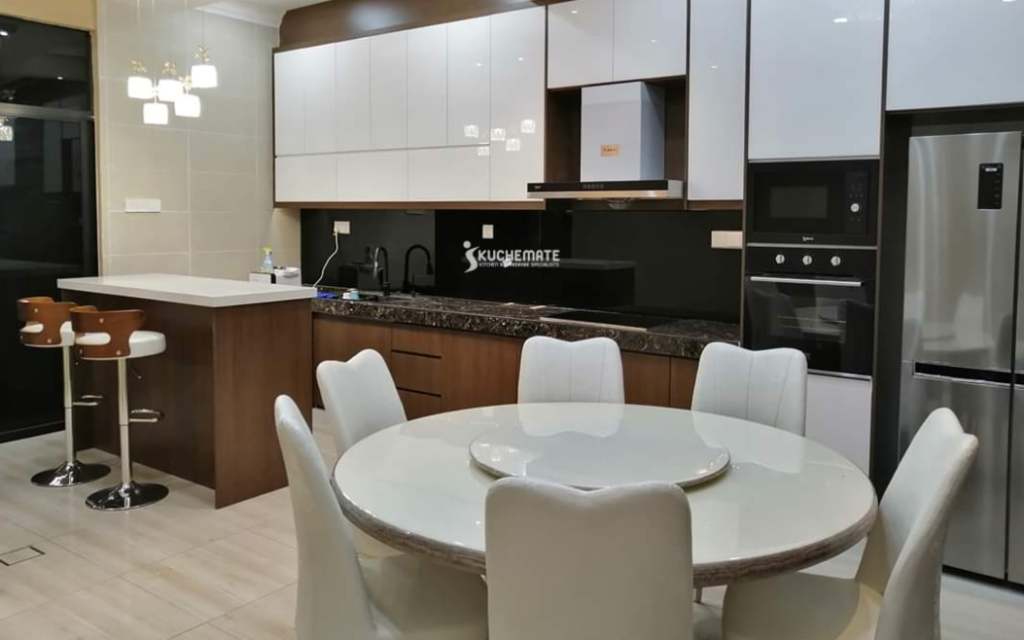- Kuchemate is re-imagining the kitchen as a versatile space that eliminates the need for separate social and productivity areas, with cabinets that combine vertical space management with the flexibility of wider work-play surfaces
- Cabinet sets are locally sourced and developed from start to finish, and made with E1-grade wood low in formaldehyde content to preserve home air quality

With home prices rising two-fold compared to the average income rate in Malaysia, young urban homeowners are looking increasingly at smaller, more cost-efficient homes. Recognizing that these space constraints have created a need for smarter storage and versatile living spaces, homegrown furnishing specialists Kuchemate is powering a reimagining of a key area in the home: the kitchen.
As the property landscape continues to be rewritten by rising land costs and its resulting limitations in space, home designers are now turning to open-concept layouts, where each area in the home is expected to accommodate multiple functions. Kitchen cabinetry sets — which combine vertical space management with the flexibility of multi-purpose surfaces like counters and islands — are emerging as an unlikely yet highly adept solution to meet this demand.
“The kitchen is one of the largest yet most indispensable spaces in any home, and thus has the greatest potential to become a space management hub with the right furniture. We’ll no longer need separate spaces for separate occasions,” says Mervyn Tan, Founder and Chief Executive Officer of Kuchemate. “Many modern cabinetry sets include wide, standalone surfaces like kitchen islands — transforming the open kitchen into an all-in-one social and productivity area where people can just as comfortably work, study, read a book, or even play tabletop games in the same space as where they eat or host gatherings.”
Additionally, its cabinets are exclusively made with E1-grade wood, an industry certification denoting materials low in formaldehyde content. This eco-conscious material preserves air quality in the home by minimizing the long-term emission of toxins into the environment.
“The conscious use of E1 wood in cabinets is especially relevant today when Malaysians are spending more and more time at home due to flexible working arrangements that have stayed on even after the pandemic. As homes — and kitchens — transform into spaces that blend work and play, it’s important that the materials used to make them contribute to creating a productive, healthy environment,” adds Tan.
Kuchemate’s cabinets are entirely sourced, produced, and assembled in Malaysia by local craftsmen, with some 3.5 million units finding homes nationwide.



